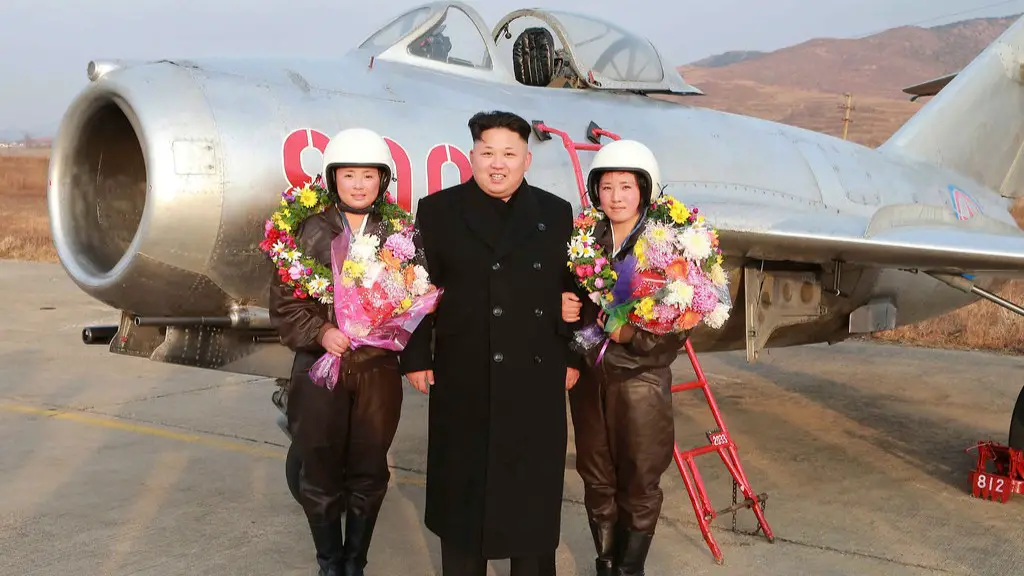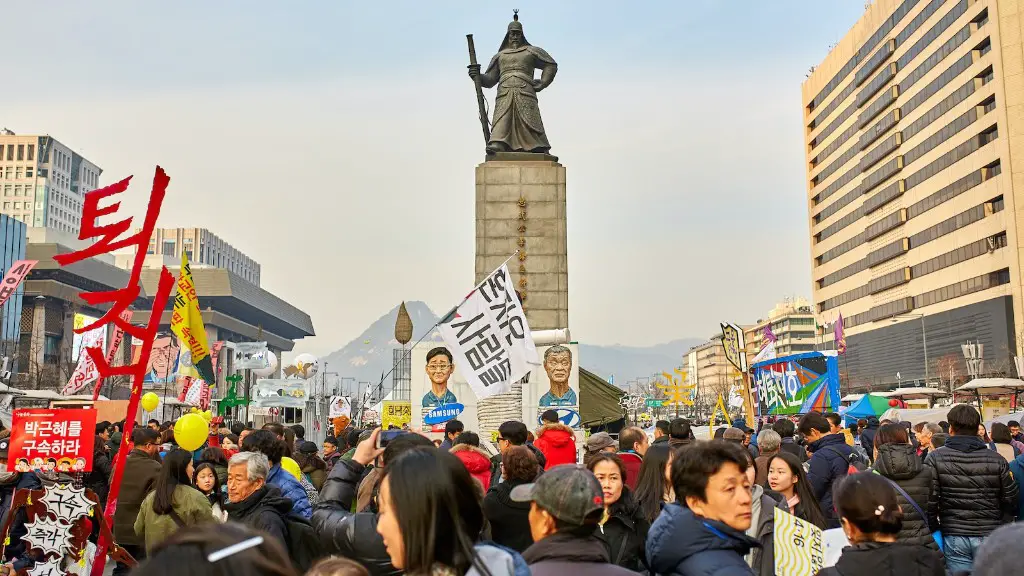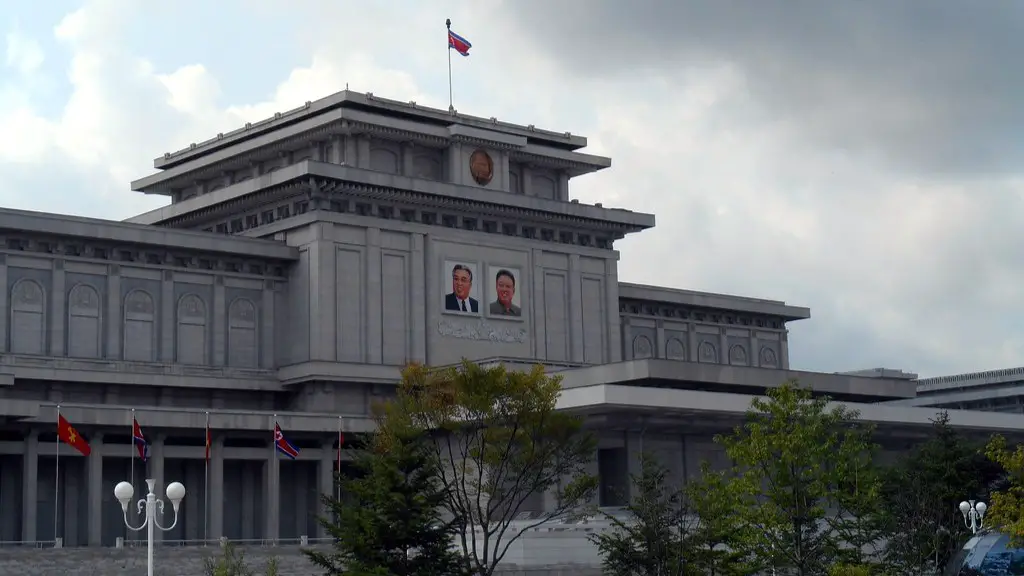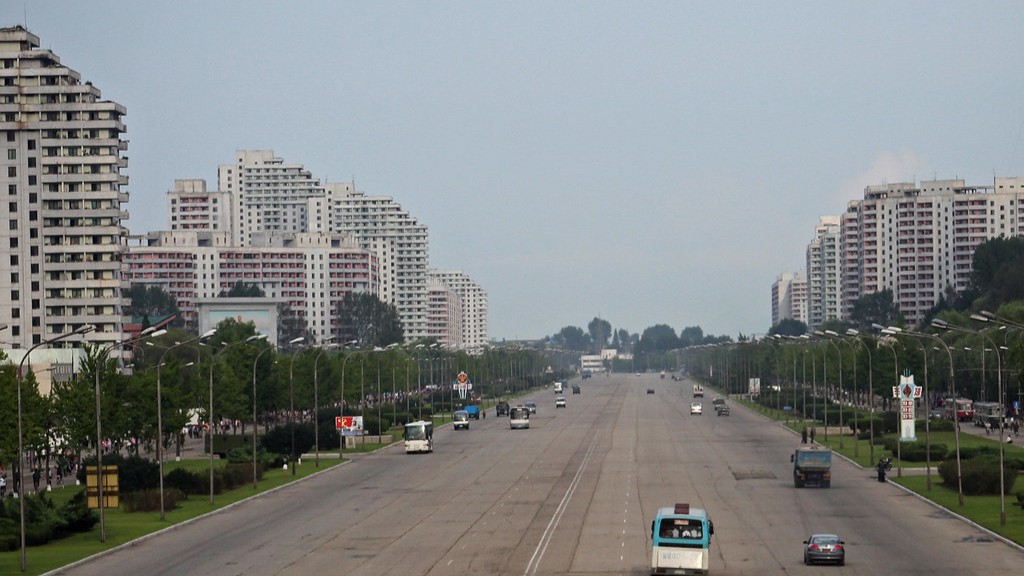What A War With North Korea: Impacts and Analysis
The fear of imminent war between North Korea and the United States has been present in the minds of many people since the North Korean regime’s testing of its sixth nuclear bomb in 2017. The danger of nuclear war and its potential devastating effects can never be understated. North Korea has one of the largest standing armies and has repeatedly threatened the United States, its allies, and its military bases with nuclear attack. Any war between the two nations, and its potential consequences, require serious consideration.
Before exploring the impacts of a potential war between the two countries, it is necessary to understand the political and tactical foundations of such a conflict. North Korea is a Soviet-style, Stalinist one-party dictatorship the Korean Workers’ Party came to power in 1945 and has been in control since then. The North Korean economy is heavily strained due to international sanctions, and its leadership is largely dependent on China. The country is also supported by Russia, which provides military and technological assistance.
From a strategic point of view, any military action against North Korea would necessitate the participation of South Korea and its allies, as the two countries have been divided since the Korean War in 1950. The United States has a long-term alliance with South Korea, and any action against North Korea would likely require the agreement of both countries. Furthermore, the United States has maintained a military presence in South Korea since the 1950s, and any war against North Korea would likely involve the deployment of US troops.
The technological capabilities of both countries’ military forces should also be taken into account. North Korea is known for its large stockpile of Scuds, short-range missiles, guided missiles, and submarines. It also has the capacity to launch nuclear weapons, as it tested its sixth nuclear device in 2017. Meanwhile, the United States’ military power is far greater than North Korea’s. It is capable of deploying nuclear and conventional weapons, as well as a sophisticated computer-guided weapons system. All of these points suggest that any potential war would not end quickly and would have severe risks involved.
The effects of a potential war with North Korea on the Asian region and the wider world can be assessed by looking at the potential consequences of past wars. Any war with North Korea could become one of the bloodiest in history, with an estimated 600,000 casualties on both sides. Furthermore, the economic cost of the conflict would affect the whole world, as any economic disruption in the region would have a ripple effect on the global economy. It is also likely that the United Nations or other international organizations would become involved, potentially leading to further complications.
Lives aside, a conflict between the United States and North Korea could severely damage both countries’ foreign relations and political standings. The United States, in particular, has a great amount of influence around the world, and any war could lead to a loss of influence and a diminishment of diplomatic resources. This could have serious consequences in other international relationships and could lead to more tensions in regions such as the Middle East.
Furthermore, any war could lead to the displacement of thousands of people in the region. South Korea, in particular, is densely populated, and any conflict in the region could lead to a humanitarian crisis. This would not only be a challenge for South Korea, but also for other countries in the area, as the population displaced by the war could come to their countries. This could lead to further conflicts, as different countries may not be prepared to handle the influx of refugees.
Potential Impact on China
China has been an important ally and economic partner of North Korea since the 1950s. Any war between North Korea and the United States would likely involve China in some capacity. At the same time, China does not want to be seen as a protagonist in any war, and would likely take steps to limit the conflict and its effects. Any war could also strain China’s foreign relations with other nations, such as the United States, which has long been at odds with China over economic and political issues.
In addition, North Korea serves as a buffer zone between China and South Korea, and any conflict could lead to South Korea entering its borders. This could have serious consequences for China’s security, as South Korea is a U.S. ally. Moreover, it could lead to an influx of refugees in China, and could possibly lead to more political and economic problems. Thus, it is in China’s interest to prevent a war between the United States and North Korea.
Potential Impact on the United Nations
Any war with North Korea would also put the United Nations in a difficult position. The organization has a key role in maintaining peace between countries, and any war between the two countries would conflict with this mission. The UN Security Council, in particular, could face stiff opposition from both China and Russia, which are both allies of North Korea. Thus, any actions taken by the United Nations could face resistance from some of its most powerful members.
Furthermore, the United Nations would likely be on the receiving end of criticism for allowing the conflict to take place in the first place. Its failure to hold the two countries accountable for their actions could lead to serious questions about the organization’s effectiveness. Thus, the United Nations would have to take steps to ensure that the conflict is kept to a minimum and that both countries are held accountable for their actions.
Potential Impact on the Global Economy
The economic implications of a war with North Korea should also be taken into account. Any economic disruption in the region could have a ripple effect on the global economy. This could lead to higher prices for commodities, as well as lower economic growth for countries in the region and beyond. Furthermore, any war could also reduce or even halt trade between the two countries, which could have severe economic repercussions.
It is also possible that the conflict could have a psychological impact on the global economy. Uncertainty over the potential consequences of the conflict could lead to investors panicking and retreating from the markets. This, in turn, could lead to recession in some parts of the world, and could have long-lasting economic effects on the global economy.
Potential Impact on the Environment
The potential environmental damages of a war with North Korea should not be overlooked. Any military conflict, especially one involving nuclear weapons, could lead to severe ecological and health impacts. The use of nuclear weapons could lead to radioactive fallout, which could contaminate the area for years. In addition, the conflict could lead to extensive destruction of infrastructure and buildings, leading to further environmental and human damages.
The conflict could also lead to air pollution and other emissions as a result of the military action. The combination of these factors could lead to a long-term decline in the region’s air and water quality. Such consequences could be felt long after the war is over, and could lead to serious human health problems.
Innovative Solutions
Given the potential devastating effects of a war with North Korea, innovative solutions are needed to prevent such a conflict. Diplomatic measures have so far been unsuccessful in defusing the tensions between the two countries, and it is time for a different approach. This could involve the use of technology, such as drones, or the deployment of international observers to monitor and report on the situation. It could also include the participation of non-governmental organizations in peace talks and negotiations.
In addition, economic sanctions should be used more effectively, as they have so far failed to influence the North Korean regime. Financial sanctions could be used to target those responsible for the country’s nuclear ambitions, or even the government itself. This could lead to changes in the political atmosphere and help to diffuse the tensions between the two countries.
Military Force
Military force should only be used as a last resort, and only if it will lead to positive outcomes for both countries. Any military action should be limited in scope and duration, as a prolonged conflict could lead to severe damages and have long-term consequences. Additionally, any military action should have a clear objective, such as the prevention of nuclear weapons proliferation, and should be authorized by the United Nations.
Any military action taken against North Korea should also be coordinated with other nations, such as South Korea, China, and Japan. This would ensure that the conflict is limited in scope and duration, and that it is in line with international law. Similarly, any military action should take into account the humanitarian consequences, and should have measures in place to minimize any civilian casualties.
Conclusion
A war between the United States and North Korea could have extremely negative consequences for the people of both countries and for the world at large. It is essential to analyze the potential impacts of such a conflict, in order to better understand the risks it poses and the different steps that must be taken to prevent it. Both diplomatic measures, such as economic sanctions, and military force, should only be resorted to as a last resort, and only if it will lead to positive outcomes for both countries.





